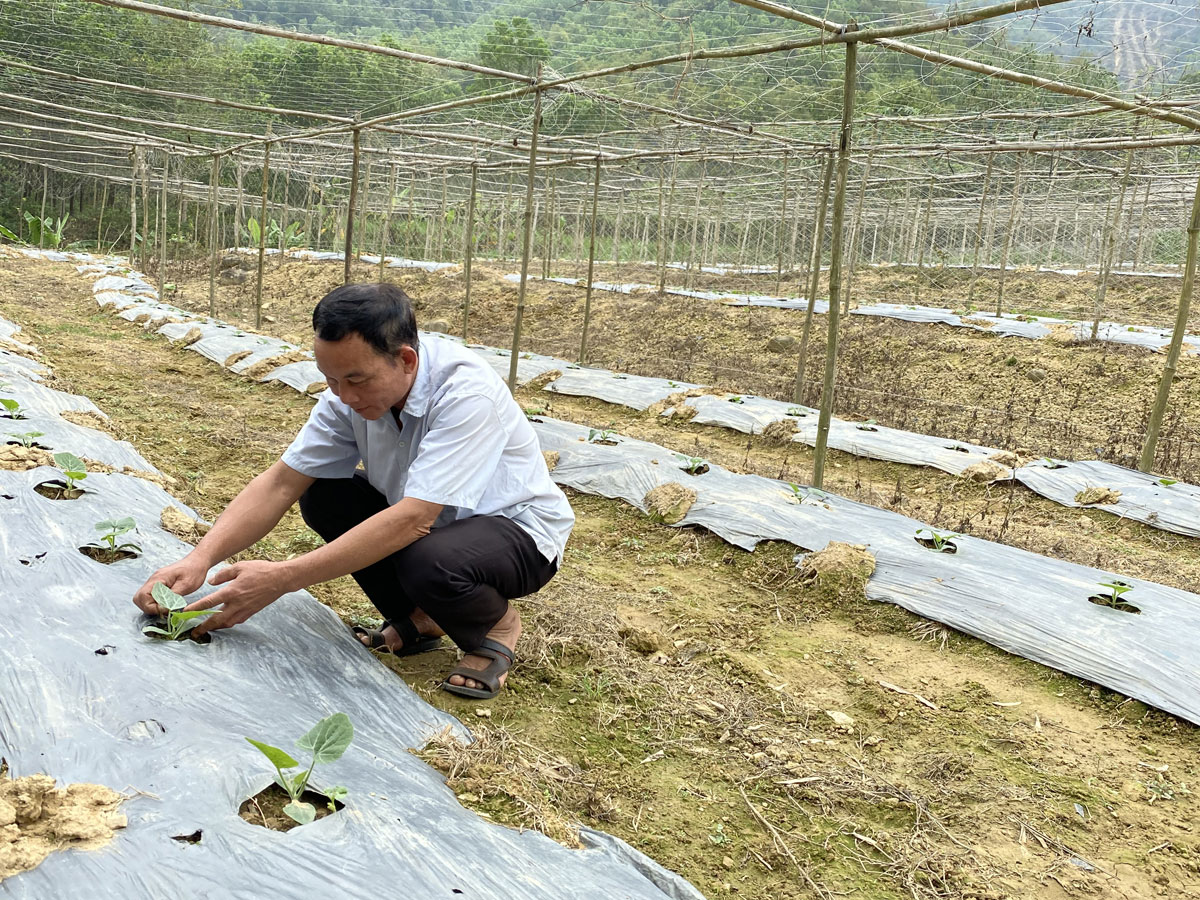



Farmers in Bai Tam hamlet, Du Sang commune (Kim Boi district) plant new crops in a value chain and in combination with seed crops.
At this time, local people in Bai Tam hamlet are cultivating the spring crops. Bui Thi Thu said: "As this year’s weather is warmer and the irrigational conditions are favourable, plants grow well. Farmers take advantage of these favourable conditions to consolidate plant trellises, clear up grasses, and nurture plant roots. The hamlet has a small rice growing area, as most of rice fields have been shifted to grow wax gourd, bitter melon, pumpkin, cucumber for seeds, vegetables and beans. Many local residents have linked with businesses to invest in seed crops, thus bringing about high economic efficiency.”
Head of the hamlet Bui Ngoc Han shared: "The linkages in production and consumption between businesses and farmers have brought about many benefits. Most practically, local people have changed their awareness of intensive farming and crop increase. Compare to rice cultivation, the economic efficiency is 5 to 10 times higher. Therefore, local residents’ living conditions have been improved. Many of them have high incomes from linkage engagement such as families of Bui Van Su and Bui Van Tuan. In the last harvest, Bui Van Su’s household earned over 70 million VND from growing 1,500sq.m of bitter melon for seeds with the productivity of 80 quintals per hectare. Bui Van Tuan grew bitter melon on an area of 1,000sq.m, with the productivity of 90 quintals per hectare, pocketing over 50 million VND.”
With the monitoring and guidance of experts and technicians of linked companies, the transformation model has proved to be effective and the production value chain has been formed. The cultivation of plants for seeds under this method has helped ensure stable prices and consumption. The average productivity of seed crops reaches 55-60 quintals per hectare. At present, two thirds of the hamlet’s households are participating in linkage models of seed crops. Several companies such as Hai mui ten do (Two red arrows), Nhiet doi (Tropical) and Tan Loc Phat have maintained connectivity and stood shoulder-to-shoulder with local farmers.
According to the head of the hamlet, local residents belong to the Muong ethnic group. With their diligence, several households have additional incomes from husbandry and trade services such as households of Bui Van Ken, Bui Van Khuong, Bui Van Hung, Bui Van Dieu and Bui Van Thoi. However, the main source of income for a majority of local people comes from engaging in the cultivation and consumption linkages of seed crops. To date, 33 hectares have been shifted to plant crops for seeds. Promoting the efficiency of the transformation, in addition to two main crops, local people also plant vegetables and beans for additional income.
In 2020, the locality’s per capita income surpassed 30 million VND, higher than the average of other hamlets, and the poverty rate reduced to 11.9 percent. Local people’s living conditions, income, and cultural and spiritual lives have been improved. Specially, Kim Boi district chose the hamlet’s linkage model as one of the outstanding models for other localities in the district and the province to follow./.